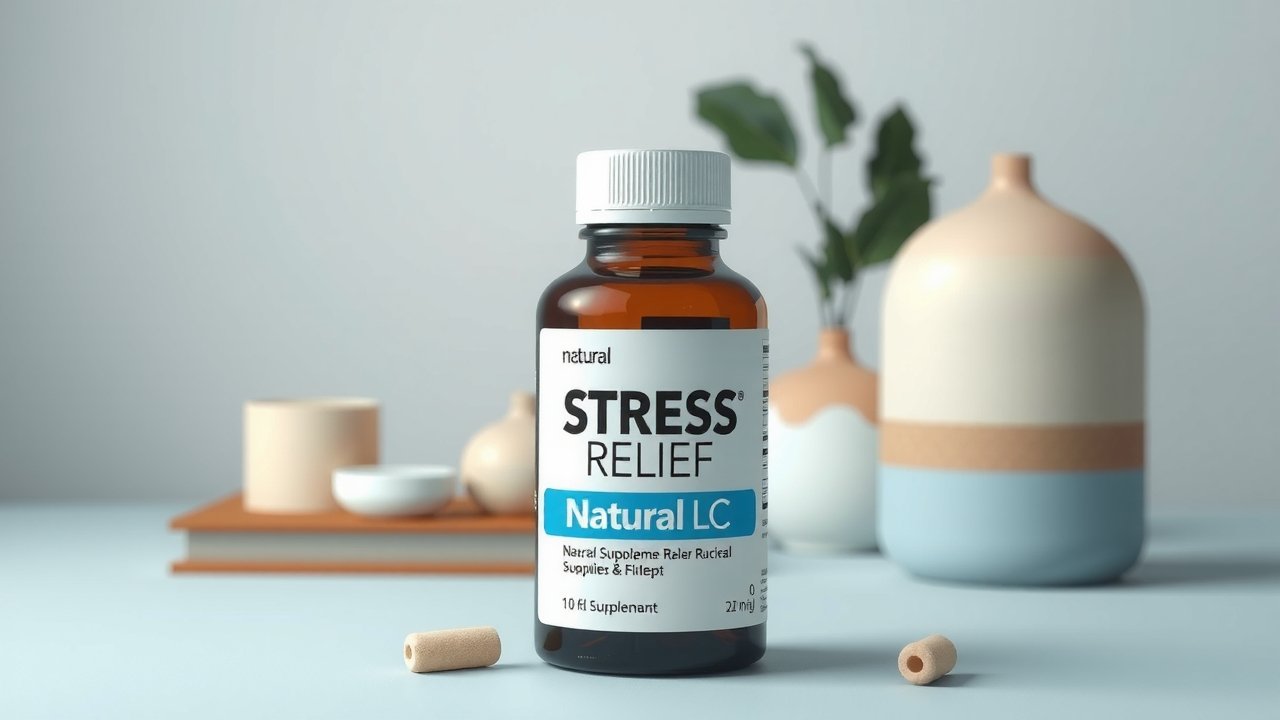In today’s fast-paced world, stress has become an unwelcome companion for many. The constant demands of work, family, and daily life can leave us feeling overwhelmed, anxious, and exhausted. But what if you could take back control? What if there were practical, effective stress management techniques that could help you find your calm amidst the chaos?
You’re not alone if you feel the weight of stress. Millions grapple with its detrimental effects on both mental and physical health. The good news is that managing stress isn’t about eliminating it entirely—which is often impossible—but about developing resilience, understanding its triggers, and equipping yourself with tools to respond constructively. This ultimate guide will walk you through comprehensive strategies, expert insights, and natural solutions to help you reduce anxiety, improve your well-being, and reclaim a sense of peace in your life. Get ready to transform your relationship with stress and cultivate lasting calm.
Table of Contents
- Why Stress Management Matters
- The Science Behind Stress Management
- Top Recommended Products
- Actionable Tips for Success: Mastering Stress Management Techniques
- Common Mistakes to Avoid in Stress Management
- Real Experiences & Results
- Conclusion & Call to Action
- FAQs About Stress Management Techniques
Why Stress Management Matters
Stress is more than just a feeling; it’s a physiological and psychological response to perceived threats or demands. While short bursts of stress can be motivating, chronic stress can have severe consequences for your health, relationships, and overall quality of life. Understanding these impacts is the first step toward appreciating the vital role of effective stress management techniques.
What are stress management techniques? Stress management techniques are a range of psychological and practical strategies designed to help individuals cope more effectively with stress, reduce its negative effects, and improve overall well-being. These techniques empower you to identify stressors, modify your reactions, and cultivate resilience against daily pressures.
The Detrimental Effects of Unmanaged Stress:
- Physical Health Issues: Chronic stress can lead to headaches, digestive problems, high blood pressure, weakened immune system function, and an increased risk of heart disease. It often manifests as muscle tension, fatigue, and sleep disturbances.
- Mental and Emotional Toll: Prolonged stress contributes to anxiety disorders, depression, irritability, mood swings, and difficulty concentrating. It can cloud judgment and hinder problem-solving abilities.
- Impact on Relationships: Stress can make you less patient, more prone to conflict, and withdraw from social interactions, straining connections with loved ones.
- Reduced Productivity and Performance: Whether at work or in personal pursuits, chronic stress diminishes focus, creativity, and energy, leading to decreased effectiveness and missed opportunities.
Conversely, successfully managing stress opens the door to numerous benefits:
- Improved Physical Health: Lower blood pressure, better sleep, stronger immunity, and reduced risk of stress-related illnesses.
- Enhanced Mental Clarity: Greater focus, improved mood, reduced anxiety, and a stronger sense of emotional balance.
- Stronger Relationships: Increased patience, better communication, and a greater capacity for empathy and connection.
- Greater Resilience: The ability to bounce back more quickly from life’s challenges and adapt to change with less distress.
Experts often highlight that modern life presents unique stressors, from digital overload to economic anxieties. Therefore, learning and applying robust stress management techniques is not a luxury but a fundamental component of holistic wellness and long-term health.
The Science Behind Stress Management
To truly master stress, it helps to understand what’s happening inside your body and mind when stress takes hold. When you encounter a stressor, your body activates the “fight or flight” response, a primal survival mechanism. This involves the release of hormones like adrenaline and cortisol from the adrenal glands.
Adrenaline increases your heart rate, elevates blood pressure, and boosts energy. Cortisol, the primary stress hormone, increases sugars in the bloodstream, enhances your brain’s use of glucose, and curbs non-essential functions in a fight-or-flight situation. While beneficial in a true emergency, chronic activation of this response due to ongoing stressors can be highly damaging.
How Stress Management Techniques Work:
Effective stress management techniques essentially work by signaling to your nervous system that you are safe, thereby deactivating the fight-or-flight response and engaging the “rest and digest” (parasympathetic) system. This shift helps to:
- Reduce Cortisol Levels: Techniques like deep breathing, meditation, and physical activity are proven to lower circulating cortisol, mitigating its long-term harmful effects.
- Balance Neurotransmitters: Regular practice of stress-reducing activities can promote the release of feel-good neurotransmitters like serotonin and dopamine, improving mood and reducing anxiety.
- Improve Heart Rate Variability (HRV): HRV is a key indicator of nervous system flexibility and resilience to stress. Many techniques, particularly mindfulness and breathwork, enhance HRV, indicating a healthier, more adaptable stress response.
- Enhance Brain Plasticity: Chronic stress can shrink areas of the brain involved in memory and learning (hippocampus) and increase activity in the amygdala (fear center). Practices like meditation can counteract this, promoting growth in beneficial brain regions and strengthening neural pathways that support calm and focus.
- Support Immune Function: By reducing the inflammatory effects of chronic stress, these techniques help maintain a robust immune system, making you less susceptible to illness.
Research consistently demonstrates that consistent engagement with stress management practices can lead to measurable changes in brain structure and function, hormone levels, and overall physical health. It’s not just about feeling better; it’s about fundamentally rewiring your response to stress at a biological level.
Top Recommended Products
While lifestyle changes are paramount, certain high-quality supplements and tools can offer valuable support in your journey to better stress management. They can help address underlying issues like sleep quality, inflammation, or general well-being, enhancing the effectiveness of your stress reduction efforts. We only recommend products we’ve thoroughly researched and believe align with a holistic approach to health.

1. SleepLean
Poor sleep is a major contributor to stress, creating a vicious cycle where stress disrupts sleep, and lack of sleep amplifies stress. SleepLean is designed to support restful sleep while also addressing weight management, a common stressor for many. By optimizing your sleep patterns, this supplement can help break the cycle of stress-induced fatigue, allowing your body and mind to recover more effectively. Many users report waking up feeling more refreshed and less anxious, which naturally contributes to better stress resilience. Learn more here to see if improved sleep and metabolism support could be a missing piece in your stress management strategy.
2. YU Sleep
Another excellent option focused purely on enhancing sleep quality, YU Sleep provides natural support for a calm and restorative night. When you’re stressed, falling asleep and staying asleep can feel impossible. YU Sleep aims to gently guide your body into a deeper state of relaxation, helping you achieve the crucial restorative sleep needed to combat the effects of daily stress. Improving sleep with a natural aid like YU Sleep can be a powerful stress management technique, allowing your brain to process emotions and prepare for the next day with greater mental clarity and emotional balance. Check today’s best deal for YU Sleep and experience the difference a good night’s rest can make.
3. ArcticBlast
Stress often manifests as physical tension, aches, and reduced flexibility. When your body is in pain or stiff, it adds another layer of stress. ArcticBlast is a topical pain relief solution that can help alleviate discomfort and improve mobility. By reducing physical barriers to relaxation and movement, it can support your overall stress management efforts. Imagine being able to move more freely, perform gentle yoga or stretching without discomfort, or simply relax without nagging aches. For those whose stress is exacerbated by physical discomfort, exploring how ArcticBlast can ease tension and improve flexibility could be a valuable addition to their routine. See full details here on how it might help you unwind and find physical comfort.
Actionable Tips for Success: Mastering Stress Management Techniques
Applying effective stress management techniques requires consistency and personalization. What works for one person might not work for another, so it’s essential to experiment and find what resonates with you. Here’s a comprehensive guide to practical strategies you can implement starting today:
1. Practice Mindfulness and Meditation
Mindfulness is the practice of being present and fully engaged in the current moment, acknowledging your thoughts and feelings without judgment. Meditation is a formal way to cultivate mindfulness.
- Start Small: Begin with 5-10 minutes of guided meditation daily using apps like Calm or Headspace.
- Focus on Breath: Pay attention to your inhale and exhale. When your mind wanders, gently bring it back to your breath.
- Mindful Moments: Practice mindfulness during everyday activities like eating, walking, or doing chores. Notice sensations, sounds, and smells.
Benefits: Reduces anxiety, improves focus, enhances emotional regulation.
2. Incorporate Regular Physical Activity
Exercise is a powerful stress reliever. It releases endorphins, natural mood lifters, and helps to burn off excess stress hormones.
- Find What You Love: Whether it’s brisk walking, jogging, cycling, dancing, or swimming, choose an activity you enjoy to ensure consistency.
- Aim for Consistency: Target at least 30 minutes of moderate-intensity exercise most days of the week.
- Consider Mind-Body Practices: Yoga, Tai Chi, and Pilates combine physical movement with breathwork and mindfulness, offering dual benefits for stress relief and flexibility. If you find physical tension limits your ability to fully engage, consider integrating a product like ArcticBlast to ease discomfort and improve your range of motion during these practices.
Benefits: Boosts mood, improves sleep, increases energy levels, reduces physical tension.
3. Prioritize Quality Sleep
Sleep is when your body and mind repair and restore themselves. Chronic sleep deprivation significantly amplifies stress and anxiety.
- Establish a Routine: Go to bed and wake up at roughly the same time each day, even on weekends.
- Create a Relaxing Environment: Ensure your bedroom is dark, quiet, and cool. Avoid screens for at least an hour before bed.
- Consider Natural Sleep Aids: If you struggle, supplements like YU Sleep or SleepLean (which also supports weight management) can provide natural support for restful sleep. Explore these options to help improve your sleep hygiene.
Benefits: Improves mood, enhances cognitive function, boosts immune system, increases resilience to stress.
4. Adopt Healthy Nutritional Habits
Your diet significantly impacts your mood and energy levels. While food can’t cure stress, certain nutrients support brain health and regulate stress responses.
- Eat Balanced Meals: Focus on whole foods, including plenty of fruits, vegetables, lean proteins, and healthy fats.
- Limit Processed Foods, Sugar, and Caffeine: These can contribute to energy crashes and anxiety.
- Stay Hydrated: Dehydration can impact mood and concentration.
Benefits: Stabilizes blood sugar, supports neurotransmitter production, improves energy and focus.
5. Cultivate Strong Social Connections
Humans are social beings. Connecting with others provides emotional support, reduces feelings of isolation, and can offer different perspectives on stressors.
- Reach Out: Spend time with friends and family who uplift you.
- Join a Community: Participate in clubs, volunteer groups, or classes that align with your interests.
- Express Yourself: Share your feelings with a trusted confidant.
Benefits: Reduces feelings of loneliness, provides support, improves mood.
6. Master Time Management and Organization
Feeling overwhelmed by tasks is a common stressor. Effective planning can reduce this burden.
- Prioritize Tasks: Use techniques like the Eisenhower Matrix (urgent/important) to focus on what truly matters.
- Break Down Large Tasks: Divide big projects into smaller, manageable steps.
- Learn to Say No: Protect your time and energy by setting boundaries.
Benefits: Reduces feelings of overwhelm, increases productivity, creates a sense of control.
7. Engage in Hobbies and Creative Outlets
Dedicating time to activities you enjoy can be a powerful antidote to stress, providing a mental break and a sense of accomplishment.
- Pursue Passions: Read, paint, play music, garden, cook, or engage in any activity that brings you joy.
- Learn Something New: The process of learning can be engaging and distracting from stressors.
Benefits: Provides distraction, fosters creativity, boosts self-esteem.
Common Mistakes to Avoid in Stress Management
Even with good intentions, people often fall into traps that hinder their ability to manage stress effectively. Recognizing these common mistakes is crucial for developing genuinely effective stress management techniques.
- Mistake 1: Ignoring Early Warning Signs. Many people wait until they’re completely overwhelmed before addressing stress.
- Correction: Pay attention to subtle cues like irritability, fatigue, or difficulty concentrating. Address stress proactively before it escalates.
- Mistake 2: Relying Solely on Unhealthy Coping Mechanisms. Using alcohol, excessive screen time, overeating, or avoiding problems might offer temporary relief but ultimately exacerbates stress.
- Correction: Replace these with healthier strategies like exercise, meditation, hobbies, or talking to a friend.
- Mistake 3: Believing You Can Handle Everything Alone. Refusing to ask for help or delegate tasks can lead to burnout.
- Correction: Recognize your limits. Delegate tasks, ask for support from friends, family, or colleagues, and consider professional help if needed.
- Mistake 4: Neglecting Self-Care. Viewing self-care as a luxury rather than a necessity.
- Correction: Schedule self-care activities (rest, hobbies, relaxation) into your daily routine. Treat them as non-negotiable appointments.
- Mistake 5: Expecting Instant Results. Stress management is a journey, not a quick fix. Getting discouraged if you don’t feel better immediately.
- Correction: Be patient and consistent with your chosen techniques. Celebrate small victories and understand that progress can be gradual.
- Mistake 6: Over-scheduling and Lack of Boundaries. Constantly filling your schedule and failing to say “no” to new commitments.
- Correction: Learn to set firm boundaries with your time and energy. Prioritize rest and downtime as much as productive work.
Real Experiences & Results
The power of effective stress management techniques is best illustrated through real-life transformations. While individual experiences vary, the overarching theme is a shift from feeling overwhelmed to empowered.
Many individuals report significant improvements in their daily lives after consistently applying these strategies. For example, Sarah, a marketing professional, found herself constantly on edge due to demanding deadlines. By incorporating a daily 15-minute mindfulness meditation and committing to evening walks, she noticed a remarkable reduction in her overall anxiety levels. She started sleeping better and felt more focused at work, leading to improved performance and a more positive outlook.
Another example comes from Mark, a busy parent who struggled with chronic fatigue and irritability. He discovered that his lack of quality sleep was a major stressor. After working on improving his sleep hygiene and trying natural sleep support, he reported feeling more rested, patient, and better equipped to handle the challenges of family life. This shift not only benefited him but also created a calmer home environment.
Experts often emphasize that the cumulative effect of small, consistent changes is what truly makes a difference. It’s not about making drastic overnight changes, but about weaving simple, effective practices into the fabric of your daily life. These personal accounts underscore that while the path is unique for everyone, the destination—a life with less debilitating stress and more peace—is achievable through dedicated effort and the right tools.
Conclusion & Call to Action
Navigating the modern world free from stress might be an impossible dream, but managing it effectively is well within your grasp. This ultimate guide has equipped you with a diverse array of stress management techniques, from the calming power of mindfulness and the revitalizing benefits of exercise to the crucial role of quality sleep and healthy social connections. Remember, the journey to a less stressed life is personal and ongoing. It’s about building resilience, practicing self-compassion, and consistently choosing strategies that nurture your well-being.
Don’t wait until stress consumes you. Start today by choosing one or two techniques that resonate most and commit to practicing them regularly. Whether it’s carving out time for meditation, prioritizing your sleep with the help of natural aids like YU Sleep or SleepLean, or finding physical relief with ArcticBlast, every small step contributes to a calmer, healthier you. Your peace of mind is worth investing in.
We encourage you to bookmark this guide and revisit it often. Experiment with different approaches, be patient with yourself, and celebrate every victory along the way. Your journey to mastering stress and finding lasting calm begins now.
Disclaimer: The information provided in this article is for educational purposes only and is not intended as medical advice. Always consult with a qualified healthcare professional before making any decisions about your health or starting any new supplement regimen.

FAQs About Stress Management Techniques
Q1: How quickly can I expect to see results from stress management techniques?
A: The timeframe for seeing results varies greatly depending on the individual, the severity of stress, and the consistency of practice. Some people feel immediate relief from techniques like deep breathing or meditation. For deeper, more lasting changes, it might take weeks or months of consistent effort. The key is regular practice and patience; think of it as building a muscle for resilience.
Q2: Are there any specific stress management techniques that are universally effective?
A: While no single technique works for everyone, several are widely recognized for their effectiveness. These include mindfulness meditation, deep breathing exercises (like diaphragmatic breathing), regular physical activity, and ensuring adequate sleep. The best approach is often a combination of techniques tailored to your personal needs and lifestyle, focusing on both immediate relief and long-term resilience building.
Q3: When should I consider seeking professional help for stress?
A: It’s advisable to seek professional help if your stress feels overwhelming, is significantly interfering with your daily life (work, relationships, sleep), or if you’re experiencing symptoms of anxiety or depression that you can’t manage on your own. A therapist, counselor, or doctor can provide personalized strategies, diagnose underlying conditions, and offer effective treatments. Remember, seeking help is a sign of strength, not weakness, and is crucial for maintaining your mental and physical health.







Be First to Comment